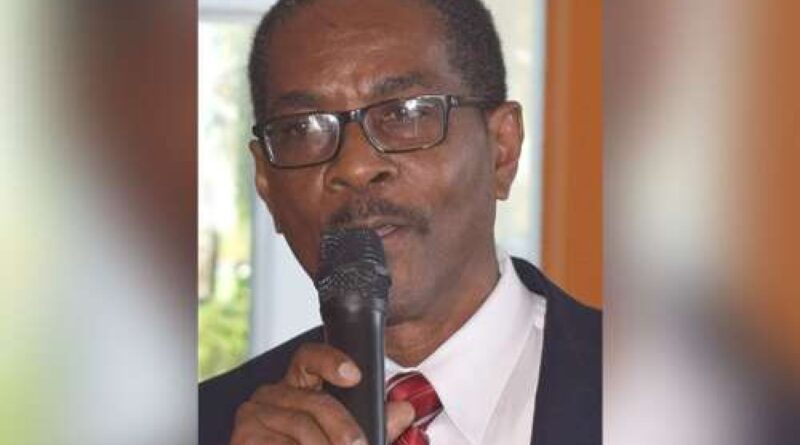‘We did nothing wrong’
Chairman of the Integrity Commission, Seymour Panton whose commisisoners say “there has been strict compliance with the law” in its operations.
THE Integrity Commission has rejected allegations of misstep, if not bungling, in its decision to table a report in Parliament which stated that Prime Minister Andrew Holness could face corruption charges, while being aware that its director of corruption prosecution had ruled that he should not be charged.
With commentators and the general public slating the body since news broke on Thursday that it had allowed the tabling of a report from its director of investigation accusing Holness of a possible conflict of interest over contracts issued to a friend of his, more than a decade ago, while being aware that he had been cleared, the five directors of the Integrity Commission on Friday fired back.
“There has been strict compliance with the law. Adverse comments in respect of the commission or its director of investigation are unwarranted and misconceived,” the directors said in a release as the commission faced calls for heads to roll.
“The Integrity Commission wishes to assure the public that it takes its task seriously. It rejects any assertion that there has been any misstep in the proceedings. In all matters under the commission’s purview every effort is made to follow the provisions of the law strictly. The ruling of the director of corruption prosecution in a matter does not change the content of the report of the director of investigation. They are independent in their operations,” the release said.
“The director of investigation and the director of corruption prosecution are given separate and distinct roles under the Integrity Commission Act. One investigates, reports, and recommends; the other rules on what is recommended. The commissioners reviewed the director of investigation’s report and saw no reason to distance ourselves from it.
“The director of investigation was saying that offences may have been committed based on the evidence that he had seen. As he was required by the law to do, he referred it to the director of corruption prosecution for her to consider whether offences were in fact committed. It was a matter for the director of corruption prosecution to decide, and she decided. Notwithstanding that decision, the law required that the report be sent to Parliament and be tabled before anything could be said about the report,” added the commissioners.
They pointed to the Integrity Commission Act which requires that where, in a report to the commission, the director of investigation is satisfied that there are reasonable grounds for suspecting that there has been a breach of a code of conduct by a public officer or parliamentarian, or where there is suspicion that an act of corruption or an offence under the Act has been committed, the commission shall submit the report to Parliament for tabling.
“There is no provision in the Act mandating the tabling of a ruling by the director of corruption prosecution. Notwithstanding that there is no provision for the tabling of a ruling, the commission has taken the position that in the interest of full and early disclosure such a ruling ought to be communicated to Parliament, and the public advised,” the commissioners added.
According to the directors of the Integrity Commission, once the report into the Holness matter was sent to the director of corruption prosecution, as required by the law, she, Keisha Prince-Kameka, submitted her ruling dated January 12, 2023, to the commission.
“The commissioners, not having had the opportunity to read, understand and discuss it, took time to do so.
“The report was sent to Parliament and was tabled on February 14, 2023. Confirmation of the tabling was communicated to the commission on February 15, 2023. The commission’s review of the ruling, having been finalised, instruction was given on the said February 15, 2023 for it to be published, and the publication was done on February 16, 2023.
“It is worth repeating and stressing that publication of the ruling could not be done before or simultaneously with the report. It had to await the tabling of the report. That is the law as crafted by Parliament and referred to earlier,” said the commissioners — Justice (Ret’d) Seymour Panton, chairman; Pamela Monroe Ellis; Justice (Ret’d) Lloyd Hibbert; Eric Crawford; and Wayne Powell.
In what appeared to be a ‘last lick’ the commissioners came to the defence of under-fire Executive Director Greg Christie as they declared that he has no control over the content of an investigation report or a ruling.
However, the commissioners did not address criticisms of Christie over his retweeting of media reports surrounding the findings of its director on investigation.
In a media interview on Thursday, general secretary of the governing Jamaica Labour Party Dr Horace Chang, who is also the deputy prime minister and minister of national security, said that his party has lost confidence in Christie.

